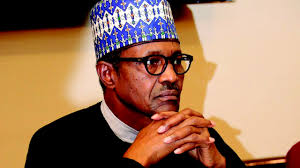The Centre for the Promotion of Private Enterprise (CPPE) has said for Nigeria to experience positive economic growth in 2023, the nation must review its tax regime as well as reset it’s monetary policy.
The centre in its economic review for 2022 and agenda for 2023, signed by its founder/CEO, Dr. Muda Yusuf, said Nigeria’s current tax regime is stifling investment while the nation’s current Cash Reserve Ratio [CRR] of 32.5 percent and Monetary Policy Rate [MPR] of 16.5 percent imposed on Nigerian banks are among the highest globally.
The centre said an economy that desires job creation, economic inclusion, investment growth and poverty reduction, should have an accommodating tax regime for investors.
According to the document made available to the Guardian yesterday, “Corporate tax in Nigeria is 30 percent. But effective corporate tax is much more than that. There is a tertiary education tax of 2.5 percent of profit; NITDA Levy of 1% of profit; NASENI Levy of 0.25% of profit; Police Trust Fund Levy of 0.005% of profit. This brings effective corporate tax to about 34 percent.”
It said this rate is one of the highest in the world, adding that the average corporate tax rate for Africa is 27.6 percent; Asian average is 19.52 percent; European Union is 19.74 percent and global average is 23.37 percent.
CPPE said in addition to that, new taxes are still being proposed by the National Assembly. “These include Tertiary Health Tax of 1% of profit; and NYSC levy of 1% of profit. There are numerous other taxes imposed on businesses by the states and local governments,” it said.
“This multitude of taxes is crippling investment in the Nigerian economy. There is need for an urgent review. The current tax regime is in conflict with the National Tax Policy which prescribes that there should be less emphasis on direct taxation in order to incentivise investment.
“Meanwhile, investors are grappling with numerous macroeconomic, structural and regulatory headwinds. They incur huge expenditure on stuffs which the government should normally provide – electricity, security, water, waste management, human capital etc. These are implicit taxes, as it were. There are also numerous state and local government taxes which businesses have to pay.”
It said that high CRR in particular has become a key impediment to financial intermediation by the banks. “Even more disturbing is the fact that effective CRR is as high as 50 percent or more for some banks. Financial intermediation is a fundamental function and essence of the banking system in an economy. The high CRR has made it difficult for the banks to play their primary role of financial intermediation. Their profitability is also adversely impacted because of limited room for credit creation activities.
“Ways and Means finances of the apex bank pose greater liquidity and inflation risk to the economy than bank deposits. We seek a reduction in CRR so that the banks can be better placed to play their primary role of financial intermediation in the economy.”
CPPE said 2022 was a challenging one for businesses and citizens especially because of the high inflation that characterised the year.
It said, “As at January this year, headline inflation was 15.60 percent and rose to a peak of 21.47 percent in November 2022. Meanwhile, food inflation consistently outpaced headline inflation and core inflation during the year. For the basket of goods and services consumed by the average Nigerian, costs have accelerated by between 50 percent to 100 percent in 2022.
“The inflationary situation was the worst in recent history and the impact on citizens and the SMEs was very devastating. The world bank reported that five million Nigerians have been pushed into poverty in 2022 amid a slump of purchasing power by 35 percent driven largely by surging inflation.”


